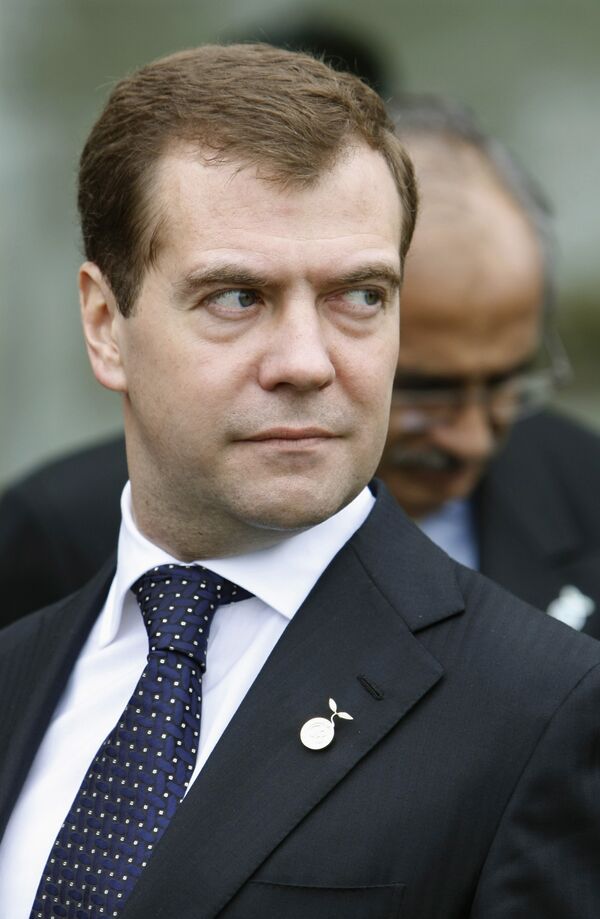MOSCOW, June 23 (RIA Novosti) - Expanding Russian-Nigerian trade, improving global energy security and dealing with the economic crisis will be priorities at the Russian president's talks in Nigeria, a Kremlin aide said on Tuesday.
Dmitry Medvedev arrived in Egypt earlier on Tuesday to kick off an African tour that will include stops in Nigeria, Namibia and Angola.
"The activation of bilateral economic cooperation will be central to [Medvedev's] talks with Nigerian President Umaru Yar'adua" on Wednesday, Sergei Prikhodko said.
Nigeria is Russia's second-largest trade partner in Sub-Saharan Africa, while Russia is one of Nigeria's top 10 foreign economic partners.
Russian-Nigerian trade has been on the rise in the past few years, reaching some $300 million in 2008, according to Prikhodko.
"Russian businesses are seeking to enter the markets of this large country," Prikhodko said.
He said intergovernmental deals would be signed to encourage and protect mutual investment and to develop cooperation in the peaceful use of nuclear energy.
Nigeria, which has recoverable uranium reserves, plans to build its first nuclear power plant in 2017. Erepamo Osaisai, head of the Nigeria Atomic Energy Commission (NAEC), said earlier the plant's capacity would be 1,000-4,000MW.
The West African country launched its first research nuclear reactor, with a capacity of 30 kW, in 2004.
Taking into account Nigeria's membership of the Organization of the Petroleum Exporting Countries (OPEC), the two presidents will also discuss the global energy security and international cooperation to overcome the worldwide economic crisis, Prikhodko said.
Founding papers have been drafted to establish a joint venture between Russian energy giant Gazprom and the Nigerian National Petroleum Corporation, NNPC, the Kremlin aide said.
Vladimir Ilyanin, managing director at Gazprom Nigeria, said earlier the Russian gas monopoly could invest some $2.5 billion in the joint venture.
Nigeria is rich in natural resources, including tin, columbite, iron ore and coal. It has 35 billion barrels of explored oil reserves and 4.1 trillion cubic meters of natural gas. The country is ranked among the world's top 10 crude exporters, and started exporting liquefied natural gas (LNG) in 1999.


